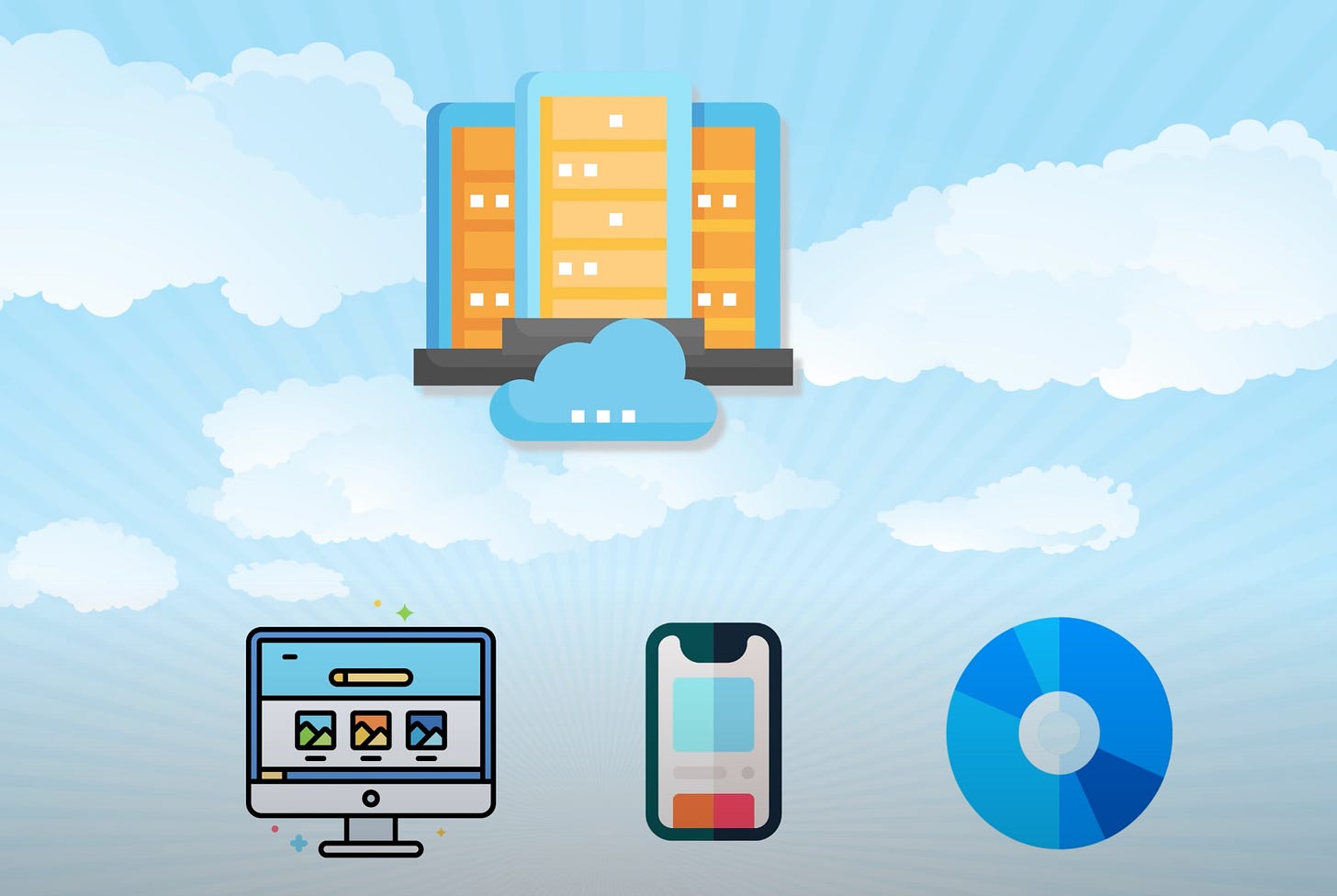Imagine you have an extensive collection of DVDs at home. Usually, you'd need to be at home in front of your DVD player to watch any of them. What if you go on a vacation or are at a friend's house and want to watch one of your movies? You would have to carry a specific DVD disc, which isn't very convenient.
Now, picture a "Cloud DVD Library" where all your DVDs are digitized and stored on powerful computers in secure buildings known as data centers. Instead of needing the physical disc and a DVD player, you can access your entire collection from any device—like your smartphone, tablet, or laptop—as long as you have an internet connection.
Want to watch a movie? Log in to your Cloud DVD Library account, browse your collection, and hit 'play'. The movie streams directly from the data center to your device; no physical disc is required. You can even pause the movie on one device and continue watching from the same point on another device.
But it's not just about convenience. This Cloud DVD Library is super smart. It can recommend movies you might like based on what you've watched before, and you can create playlists of movies for specific moods or occasions. You can also share access with family and friends so they can enjoy your collection too.
Your Cloud DVD Library can also hold way more movies than you could ever fit on your shelf at home. Plus, it's easier to organize, search, and manage your collection because it's in the cloud. Say you’re interested in sci-fi movies; you could easily search and find all the sci-fi films in your library with just a click.
So, using cloud computing is like having a Cloud DVD Library: it's an incredibly convenient and efficient way to access, manage, and share your resources without physical media and hardware limitations. If you haven’t guessed yet, Netflix and YouTube are two of the top services that wouldn’t exist today without cloud computing.
That’s all for this post. Please like and subscribe.



